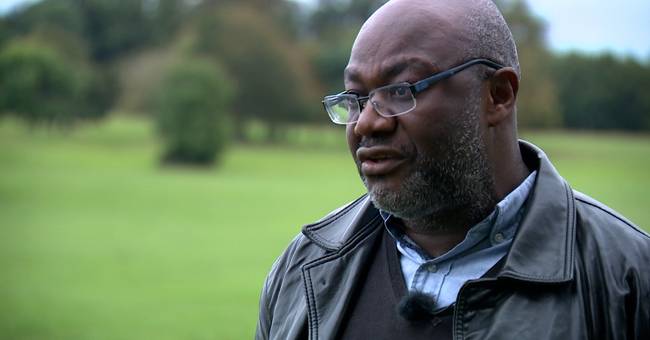In Nigeria, half of all food is still cooked over an open fire.
The country's government wants to electrify the countryside with the help of natural gas, and needs financial support for it.
Wrong way, says Britain, which during the first week of the climate summit is expected to launch an international alliance to ban aid and loans for oil, coal and natural gas.
The advice to African countries is to invest in sun and wind instead.
- It is hypocrisy, why should Africa not be allowed to continue to have natural gas in its energy mix?
Donor countries such as the United States and the United Kingdom intend to keep natural gas until 2040, but they want to cut off electricity contact for the whole of Africa.
It's neo - colonial.
The most outrageous thing is that African leaders are not even consulted, Professor Oreke believes.
Betrayed promises
But 200 international organizations have expressed support for the alliance.
The European Investment Bank EIB has also decided to stop financing fossil energy projects from the end of 2021.
- The green transition requires investments in renewable energy.
We can no longer lend money abroad for investments in oil, coal and natural gas, says Judith Gogh, the UK's ambassador to Sweden, to SVT.
Failed promises of climate aid have also caused a crisis of confidence ahead of the Glasgow summit.
As early as 2009, the rich part of the world promised $ 100 billion - every year from 2020 in climate aid to developing countries, money to help them adapt to meet the climate change they have historically not been involved in creating.
But the money has largely been converted into loans and so far almost 80 billion has been disbursed.
India, which informally leads developing countries' actions during climate negotiations, is annoyed that old promises are not being met, while at the same time there is now strong pressure to join countries that promise net zero emissions by 2050.
- The finish line is moved all the time.
We can not give new promises if old promises are ignored, says India's ambassador Tanmaya Lal to SVT.
Fate question
But despite the fact that large emitting countries such as China, India and Brazil have not come up with new climate promises, the British Ambassador Judith Gogh believes that the pressure to tighten the climate promises will lead to progress in Glasgow.
- We all know how short time is and what a question of fate it is.
The Glasgow meeting is not the last chance, but the best chance to keep the Paris Agreement's goal of a maximum of 1.5 degrees warming alive.

